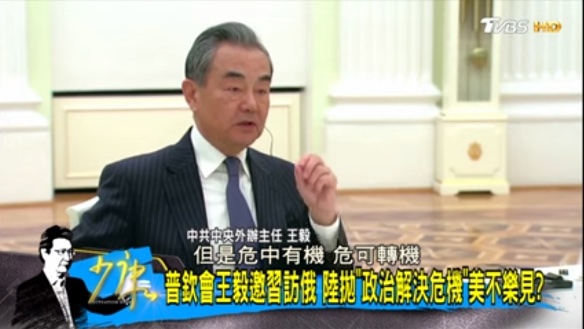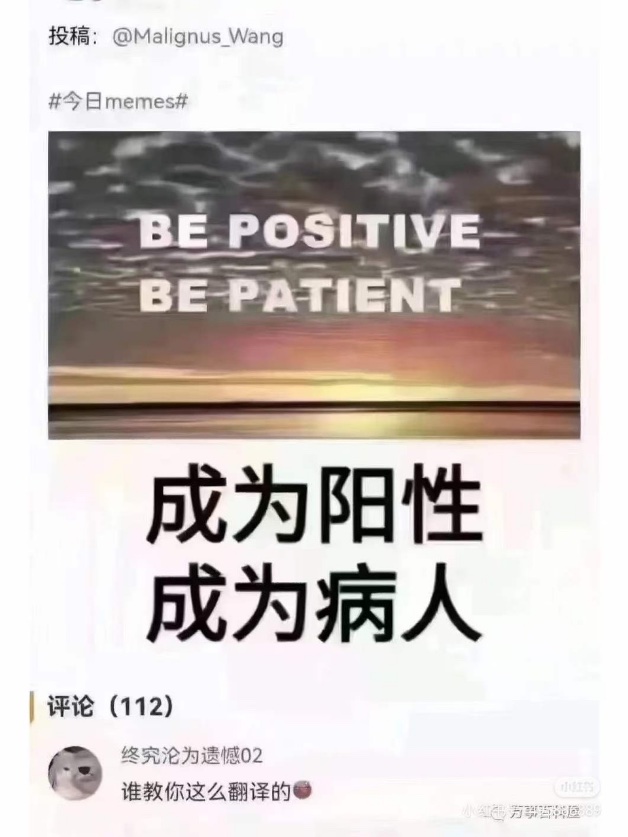Archive for Memes
July 20, 2025 @ 5:37 am· Filed by Victor Mair under Language and literature, Language and religion, Memes, Philology, Vernacular
Before I introduce what to me is one of the most stupendous humanities discoveries I have encountered in the last six decades, I have to explain briefly why it is so exciting. Namely, here we get to witness the emergence of a few bits of vernacular English in a religiously imbued medieval Latin matrix. This is exactly how medieval vernacular Sinitic started to appear in the framework of Classical Chinese / Literary Sinitic during the heyday of medieval Buddhism. Just as in the medieval Christian homilies of Peterhouse MS 255, we see the common (sú 俗) preachers of Dunhuang resorting to vernacular language and popular "memes" in their "transformation texts" (biàn[wén] 變[文]) to keep the attention of their auditors / readers.
I wrote my undergraduate thesis on Geoffrey Chaucer's (d. 1400) Troilus and Criseyde. That was a long time ago, sixty years, in fact. Imagine my surprise when I opened the New York Times yesterday and discovered that this medieval romance was back in the news.
900-Year-Old Copyist's Error May Unravel a Chaucer Mystery
The Tale of Wade, twice referred to in Geoffrey Chaucer’s poems, survives only in a tiny fragment. Two academics argue a scribe’s error deepened the confusion around it.
Stephen Castle, NYT (7/15/25)
Read the rest of this entry »
Permalink
July 10, 2025 @ 1:00 pm· Filed by Victor Mair under Language and literature, Memes
[This is a guest post by Bill Benzon]
I thought you’d be interested in a study showing the distribution of “Xanadu” across the web. I first looked into this back in 2010. I’ve now updated that work using ChatGPT o3 (one of the so-called “reasoning” models). It designed the study and executed it.
This report ran all night. And it’s the kind of thing that would have been impossible prior to the internet. Here’s the abstract:
Read the rest of this entry »
Permalink
September 23, 2024 @ 9:22 am· Filed by Victor Mair under Censorship, Language and economics, Language and history, Memes
This is a phrase that has been sweeping through China during recent months. In Chinese it is "lìshǐ de lājī shíjiān 历史的垃圾时间". The expression "lājī shíjiān 垃圾时间" started out in sports to characterize a situation where one side has such a commanding lead that it would be impossible for the other team to catch up. It's a foregone conclusion who is going to win, so the leading team can do what is called "play out the clock", putting in second- and third-string players to give them experience. Furthermore, it would be considered unsportsmanlike to pile up the score against the losing team.
The expression "lājī shíjiān 垃圾时间" was only applied to historical analysis when essayist Hu Wenhui coined the fuller phrase "lìshǐ de lājī shíjiān 历史的垃圾时间" in a 2023 WeChat post.
Read the rest of this entry »
Permalink
September 2, 2024 @ 12:09 pm· Filed by Victor Mair under Classification, Emojis and emoticons, Language and biology, Memes
[This is a guest post by Meme Master Mark (MMM), who says he's honored that I call him that: "3M is also from Minnesota" (see the first sentence).]
Having spent many of my formative years in Minnesota, "crab raccoon" makes perfect sense.
This was a pretty disturbing tattoo:

Read the rest of this entry »
Permalink
July 11, 2023 @ 6:22 am· Filed by Victor Mair under Memes
"Lying flat", "Buddha whatever", "Kong Yijiism", "involution" — China today has so many memes for opting out. Helen Gao explains the reasons for their profusion:
How China’s Education System Trapped a Generation
Young people have been trained into competition and hopelessness.
Foreign Policy (6/22/23)
—–
From 2003 to 2005, I was a student at rendafuzhong (the High School Affiliated to People’s University) a notoriously cutthroat institution in the Chinese capital. It was well before the term “lying flat” was coined to describe opting out of the unwinnable race of Chinese academic and career competition. But some of my classmates seemed to have already cottoned on to the reality of what lay ahead. At the time, they made little sense to me. Looking back, I see they were the first victims of what the school was doing to us—and what the state is doing to us now.
Read the rest of this entry »
Permalink
May 22, 2023 @ 7:00 am· Filed by Victor Mair under Etymology, Language and history, Language and mathematics, Language and science, Memes, Writing systems
Plus Indic, plus Arabic, Korean, Vietnamese, Hokkien (Taiwanese), Hakka, and Fuzhou (Eastern Min).
For an exciting read / ride, be sure to follow the whole thread, travelling through time and space.
Courtesy of Egas Moniz-Bandeira ᠡᡤᠠᠰ ᠮᠣᠨᠢᠰ ᠪᠠᠨᡩ᠋ᠠᠶᠢᠷᠠ
Read the rest of this entry »
Permalink
April 22, 2023 @ 10:33 pm· Filed by Victor Mair under Innovation, Linguistics as a discipline, Memes, Words words words, Writing systems
Remixed meme:

Read the rest of this entry »
Permalink
April 15, 2023 @ 6:27 am· Filed by Victor Mair under Data bases, Information technology, Language and art, Language and philosophy, Language play, Linguistics in the comics, Logic, Memes
From Phillip Remaker:
Loved your deep dive on finding the provenance of the "conspiracy theory" image.
The one that claimed authorship clipped the edge of the unicorn tail.
The only version I have found that doesn't clip the edge of the unicorn tail is
this one from
farhan
I don't know if that means I found the original or if the author touched it up. The page is not archived on the Internet Archive.
It seems consistent with his other art.
Read the rest of this entry »
Permalink
March 31, 2023 @ 7:11 am· Filed by Victor Mair under Alphabets, Language and literature, Memes
"Kong Yiji" is one of the most famous short stories by Lu Xun (1881-1936), the most celebrated Chinese author of the 20th century.
"Kong Yiji" (Chinese: 孔乙己; pinyin: Kǒng Yǐjǐ) is a short-story by Lu Xun, the founder of modern Chinese literature. The story was originally published in the journal New Youth (Chinese: 新青年) in April 1919 and was later included in Lu Xun's first collection of short stories, Call to Arms (Chinese: 吶喊). The story's narrator reminisces about Kong Yiji, a pedantic scholar who became the laughing-stock of the tavern where the narrator worked. In the end, Kong's legs were broken as punishment for stealing books. He is a ridiculous and pathetic character, a symbol for the indifference between people in the old days.
Read the rest of this entry »
Permalink
February 24, 2023 @ 1:52 am· Filed by Victor Mair under Errors, Etymology, Language and politics, Memes, Proverbs, Slogans, Tropes
From the recent meeting between Putin and Wang Yi (Director of the Office of the Central Foreign Affairs Commission of the Chinese Communist Party):

Read the rest of this entry »
Permalink
February 21, 2023 @ 6:15 pm· Filed by Victor Mair under Emojis and emoticons, Memes
So everybody knows what we're talking about:
Baozi (Chinese:  包子), Pao-tsih or bao, is a type of yeast-leavened filled bun in various Chinese cuisines. There are many variations in fillings (meat or vegetarian) and preparations, though the buns are most often steamed. They are a variation of mantou from Northern China.
包子), Pao-tsih or bao, is a type of yeast-leavened filled bun in various Chinese cuisines. There are many variations in fillings (meat or vegetarian) and preparations, though the buns are most often steamed. They are a variation of mantou from Northern China.
(source)
Early on in his presidency, Xi Jinping picked this up as one of his nicknames, like Winnie the Pooh, both from his puffy shape. Both fall under the category of "rǔ bāo 辱包" ("disgracing the dumpling").
Read the rest of this entry »
Permalink
December 23, 2022 @ 3:07 pm· Filed by Victor Mair under Found in translation, Language and medicine, Memes, Semantics
Meme online from a Chinese forum (fortunately I have a screenshot). Hilarious, but sad, though, considering China’s reported covid conditions.

Read the rest of this entry »
Permalink
May 26, 2022 @ 2:01 pm· Filed by Victor Mair under Language and society, Memes
Another new term for expressing lack of interest in the present and future in China:
The rise of ‘bai lan’: why China’s frustrated youth are ready to ‘let it rot’
Phrase bai lan gains popularity as severe competition and social expectations leave many young people despondent
Vincent Ni, The Guardian (5/25/22)
This one is borrowed from NBA usage: "let it rot", referring to players who are on astronomical contracts but are not performing well. As the son of an organic gardener who also raised earthworms, I can attest that the NBA metaphor was borrowed from the language of composting.
Read the rest of this entry »
Permalink



